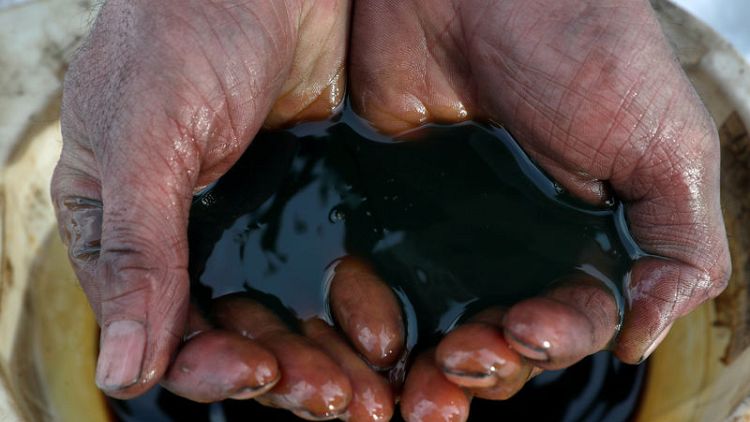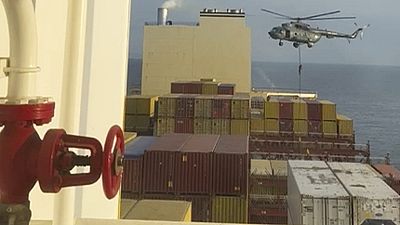By Seng Li Peng
SINGAPORE (Reuters) - Brent crude prices are expected to be around $60 to $65 a barrel next year as any possible price hikes from geopolitical risks would be countered by ongoing trade war, according to a top executive of the Institute of Energy Economics, Japan (IEEJ).
The lack of stability in the Middle East would raise the oil prices but the tariff war between the U.S. and China is likely to have a negative impact on them, Masakazu Toyoda, chairman and chief executive officer of IEEJ, told Reuters in an interview during the Singapore International Energy Week.
He said oil prices came back down the next day after Brent went above $70 a barrel following the attacks on Saudi Arabia's oil facilities last month.
"Many people are concerned with the economic downturn... Somehow, the balance situation is around $60 a barrel," he said.
The Sept. 14 attacks sent Brent to nearly $71.95 on Sept. 16 before it settled at $69.02 on the same day.
Brent is currently trading below $62.
Despite the gloomy economic outlook, Toyoda added that the overall oil consumption in Asia would continue to grow in the next 10 years although demand in Japan and South Korea is falling.
Nonetheless, Japan still needs to secure its energy resources given that some 85% of its crude is supplied by the Middle East and some 8-10% from Russia although supplies from the latter may not necessarily be consistent, he said.
"With respect to security a couple of things are important. First, we have to keep stockpiling. At this moment, we have about 200 days of stockpiling. And as I have said, the consumption is declining, so we can reduce stockpiling but for the moment we don't reduce stockpiling."
Toyoda added that Japan tries to work closely with (South) Korea, China or the region to have joint stockpiling.
He added that diversification of energy source could be another option and highlighted the importance of hydrogen as one of the solutions of the future.
(Reporting by Seng Li Peng; Additional reporting by Jane Chung in SEOUL; Editing by Rashmi Aich)



